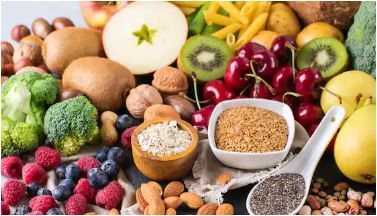
Vitamin D deficiency can pose a potential health concern for individuals following a vegan diet. As a result, it is crucial for vegans to be mindful of their vitamin D intake to maintain optimal health.
Vegans, who abstain from consuming all animal products, including meat, dairy, and eggs, often have limited dietary sources of vitamin D. Unlike some other essential nutrients found in plant-based foods, vitamin D is primarily obtained through exposure to sunlight and fortified foods. Due to this dietary restriction and potential lack of sunlight exposure, vegans may be at risk of developing vitamin D deficiency.
The Importance of Vitamin D: Vitamin D is a crucial nutrient that plays a vital role in various bodily functions. It is essential for maintaining bone health, as it aids in calcium absorption, and supports the immune system, cardiovascular health, and overall well-being. Insufficient vitamin D levels can lead to bone-related issues, weakened immune response, and increased susceptibility to certain diseases.
Sources of Vitamin D for Vegans: While it may be more challenging for vegans to obtain vitamin D from dietary sources alone, there are still several options available. Fortified plant-based milk, orange juice, and certain cereals can be good sources of vitamin D. Additionally, some vegan vitamin D supplements derived from plant sources, such as algae, are available on the market. However, it is essential to consult with a healthcare professional to determine the appropriate dosage and ensure the supplements are suitable for individual needs.
Sunlight Exposure: Besides dietary sources, exposure to sunlight is a natural way for the body to produce vitamin D. However, factors such as geographic location, weather, and individual lifestyle choices can impact sunlight exposure. Vegans living in areas with limited sunlight or those who adhere to a predominantly indoor lifestyle might be at a higher risk of deficiency.
Prevention and Supplementation: To reduce the risk of vitamin D deficiency, vegans should pay close attention to their diet and ensure they consume fortified foods and plant-based supplements if needed. Regularly spending time outdoors in sunlight can also help the body produce vitamin D naturally. However, for those who may have difficulty meeting their vitamin D needs through sunlight and diet alone, supplementation under medical guidance can be a practical solution.
Conclusion: Being aware of the potential risk of vitamin D deficiency is crucial for vegans to maintain overall health and well-being. By incorporating fortified foods, plant-based supplements, and moderate sunlight exposure, vegans can proactively prevent vitamin D deficiency and support their nutritional needs effectively. Regular monitoring and consultation with a healthcare professional can ensure adequate vitamin D levels and optimal health for those following a vegan lifestyle.
